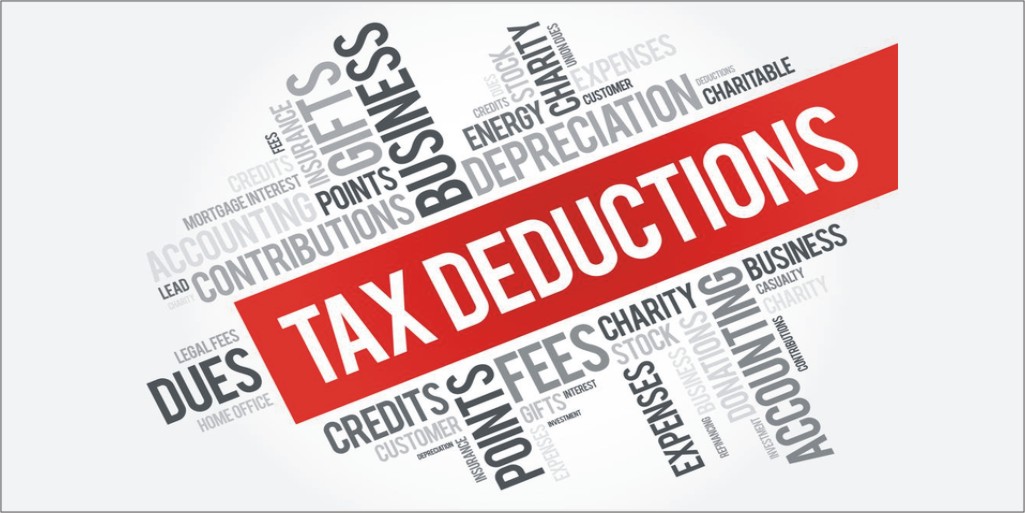
A Thread 🧵80 C Deduction of Income Tax.
Must read for everyone.
A Simple way to to save tax upto Rs. 46,800 each year!
(RT to maximize reach.)
@caniravkaria @CAPratik_INDIAN views welcome 🙏
#IncomeTax #Tax #ELSS #TaxSaving #Investing #TaxPlanning
Must read for everyone.
A Simple way to to save tax upto Rs. 46,800 each year!
(RT to maximize reach.)
@caniravkaria @CAPratik_INDIAN views welcome 🙏
#IncomeTax #Tax #ELSS #TaxSaving #Investing #TaxPlanning

When the month of March starts or is about to end suddenly everyone remembers one thing #TaxSaving ...
This is where #TaxDeductions come into picture.
Deductions allowed under the #IncomeTax act help you reduce your taxable income.
This is where #TaxDeductions come into picture.
Deductions allowed under the #IncomeTax act help you reduce your taxable income.
Deduction under Section 80 C is a popular tax deduction section which allows you to claim a deduction of Rs 1.5 lakh on your total income.
By completely utilizing this deduction limit, a person can save tax upto Rs. 46,800 each year! (For person
falling in tax bracket of 30%).
By completely utilizing this deduction limit, a person can save tax upto Rs. 46,800 each year! (For person
falling in tax bracket of 30%).
Certain types of #investments and #payments are eligible for 80 C deduction of #IncomeTax.
In this Thread I shall describe them.
For details you can read my book 📗 "Investment Planning" co-authored by @KhushbooAGala
In this Thread I shall describe them.
For details you can read my book 📗 "Investment Planning" co-authored by @KhushbooAGala
1⃣ Investment in #ELSS Fund or Tax Saving Mutual Fund
It is considered as the best tax saving option. Has a lowest lock-in period of 3 years and has historically higher returns than FD, #PPF or #NPS.
#TaxSaving #IncomeTax #IncomeTaxIndia
It is considered as the best tax saving option. Has a lowest lock-in period of 3 years and has historically higher returns than FD, #PPF or #NPS.
#TaxSaving #IncomeTax #IncomeTaxIndia
2⃣ Investments in Tax Saving FDs
Tax-saving FDs are like regular fixed deposits but come with a lock-in period of 5 years. They carry comparatively lower risk. Interest earned is taxable.
#TaxSaving #IncomeTax #IncomeTaxIndia
Tax-saving FDs are like regular fixed deposits but come with a lock-in period of 5 years. They carry comparatively lower risk. Interest earned is taxable.
#TaxSaving #IncomeTax #IncomeTaxIndia
3⃣ Investments in Public Provident Fund (PPF)
#PPF are long term investments backed by government of India. PPF account have lock-in period of 15 years. Partial withdrawals are allowed after 7 years. Interest earned is tax-free.
#TaxSaving #IncomeTax #IncomeTaxIndia
#PPF are long term investments backed by government of India. PPF account have lock-in period of 15 years. Partial withdrawals are allowed after 7 years. Interest earned is tax-free.
#TaxSaving #IncomeTax #IncomeTaxIndia
4⃣ Investments in Employee Provident Fund (EPF)
#EPF is a retirement benefit scheme that is available to all salaried employees. This amounts to 12% of basic salary + DA, that is deducted by an employer and deposited in the EPF or other recognized provident funds.
#TaxSaving
#EPF is a retirement benefit scheme that is available to all salaried employees. This amounts to 12% of basic salary + DA, that is deducted by an employer and deposited in the EPF or other recognized provident funds.
#TaxSaving
5⃣ Investments in NPS (National Pension System)
#NPS is a pension scheme that has been started by the Indian Government to allow the unorganised sector and working professionals to have a pension after retirement.
#TaxSaving #IncomeTax #IncomeTaxIndia
#NPS is a pension scheme that has been started by the Indian Government to allow the unorganised sector and working professionals to have a pension after retirement.
#TaxSaving #IncomeTax #IncomeTaxIndia
6⃣ Investments in Unit linked Insurance Plans (ULIP)
#ULIPs are a mix of insurance and investment. A part of invested amount in ULIPs is used to provide insurance and rest is invested in the stock markets.
Investment and withdrawals & maturity amount are tax-free.
#TaxSaving
#ULIPs are a mix of insurance and investment. A part of invested amount in ULIPs is used to provide insurance and rest is invested in the stock markets.
Investment and withdrawals & maturity amount are tax-free.
#TaxSaving
7⃣ Investment in Post Office Savings Schemes
It includes investments in National Saving Certificate (NSC), Kisan Vikas Patra (KVP), Post Office Tax Savings Deposits, Senion Citizens Savings Scheme (SCSS), etc.
#TaxSaving #IncomeTax #IncomeTaxIndia #InvestentPlanning
It includes investments in National Saving Certificate (NSC), Kisan Vikas Patra (KVP), Post Office Tax Savings Deposits, Senion Citizens Savings Scheme (SCSS), etc.
#TaxSaving #IncomeTax #IncomeTaxIndia #InvestentPlanning
8⃣ Investments in Sukanya Samriddhi Yojana
Sukanya Samriddhi Yojana is a popular schemes by the Government of India aimed at betterment of girl child in the country. Parents/guardians can open an account in name of a girl child till she attains age of 10 years.
#TaxSaving
Sukanya Samriddhi Yojana is a popular schemes by the Government of India aimed at betterment of girl child in the country. Parents/guardians can open an account in name of a girl child till she attains age of 10 years.
#TaxSaving
9⃣ Investment in Infrastructure Bonds
These are government-approved bonds that are issued by companies like India Infrastructure Finance Company and Infrastructure Development Finance Company.
#TaxSaving #TaxPlanning #IncomeTax #IncomeTaxIndia
These are government-approved bonds that are issued by companies like India Infrastructure Finance Company and Infrastructure Development Finance Company.
#TaxSaving #TaxPlanning #IncomeTax #IncomeTaxIndia
🔟 Payments of LIC Premium
Annual premium paid for life insurance in name of taxpayer or taxpayer's wife & children is an eligible tax-saving payment under Section 80C. Deduction is valid only if premium is less than 10% of the sum assured.
#TaxSaving #TaxPlanning #IncomeTax
Annual premium paid for life insurance in name of taxpayer or taxpayer's wife & children is an eligible tax-saving payment under Section 80C. Deduction is valid only if premium is less than 10% of the sum assured.
#TaxSaving #TaxPlanning #IncomeTax
1⃣1⃣ Payments of Children's Tuition Fees
Tuition fee paid for education of two children is eligible for tax deduction under Section 80C. Fee can be paid to any school, college, university or educational institute situated in India for a full-time course only.
#TaxSaving
Tuition fee paid for education of two children is eligible for tax deduction under Section 80C. Fee can be paid to any school, college, university or educational institute situated in India for a full-time course only.
#TaxSaving
1⃣2⃣ Repayment of Home Loan
Repayment of principal of a loan taken to buy or construct a residential property is eligible for tax deductions under Section 80C. This deduction is also applicable on stamp duty, registration fees and transfer expenses.
#TaxSaving #TaxPlaning
Repayment of principal of a loan taken to buy or construct a residential property is eligible for tax deductions under Section 80C. This deduction is also applicable on stamp duty, registration fees and transfer expenses.
#TaxSaving #TaxPlaning
There are various other common tax deductions whose benefit every person can take and legally and ethically save taxes.
If you liked this 🧵 on #TaxSaving please share it with all your friends.
If you liked this 🧵 on #TaxSaving please share it with all your friends.
Forgot to add an important advice and a disclaimer.
I am not a qualified C.A. This thread is to provide only basic idea about common 80C deductions.
For more details better to contact your C. A and discuss about various #TaxDeductions whose benefit you can claim.
I am not a qualified C.A. This thread is to provide only basic idea about common 80C deductions.
For more details better to contact your C. A and discuss about various #TaxDeductions whose benefit you can claim.
As promised in DM to many people, here comes a thread🧵on all common #TaxDeductions including #80C
👇👇👇
👇👇👇
https://twitter.com/AnkitGalaStocks/status/1375735040160661504?s=20
• • •
Missing some Tweet in this thread? You can try to
force a refresh





